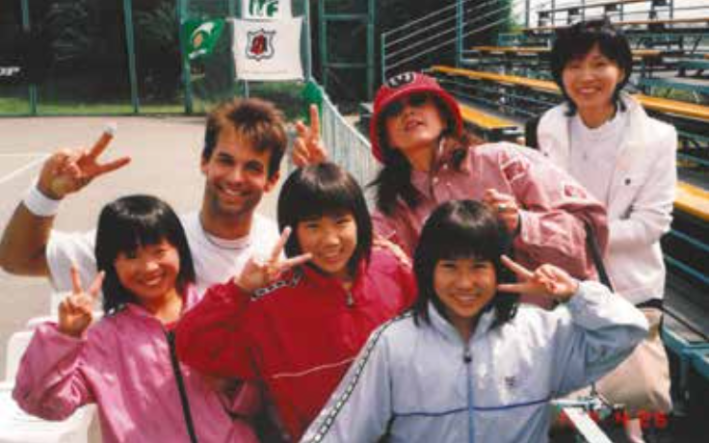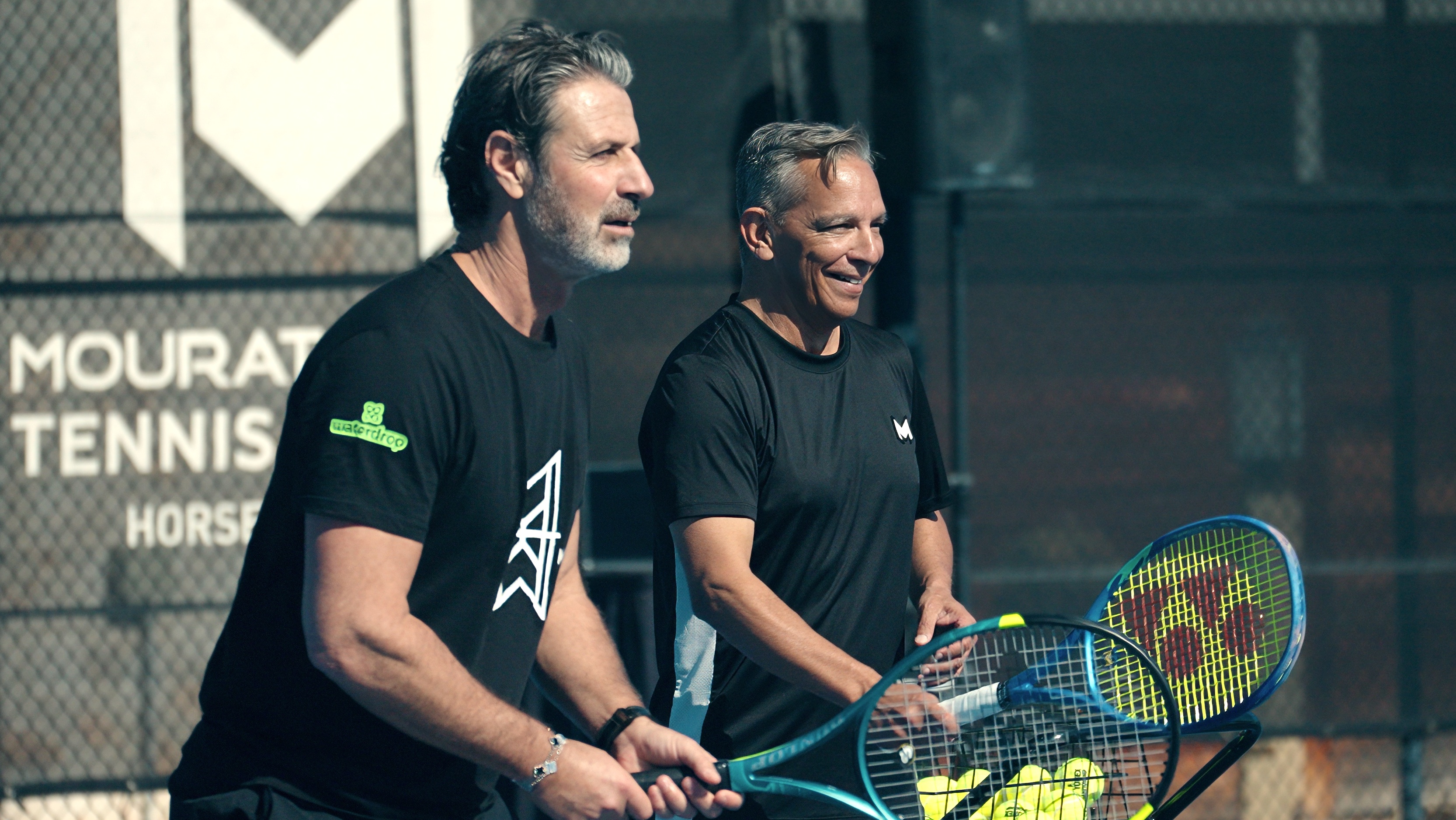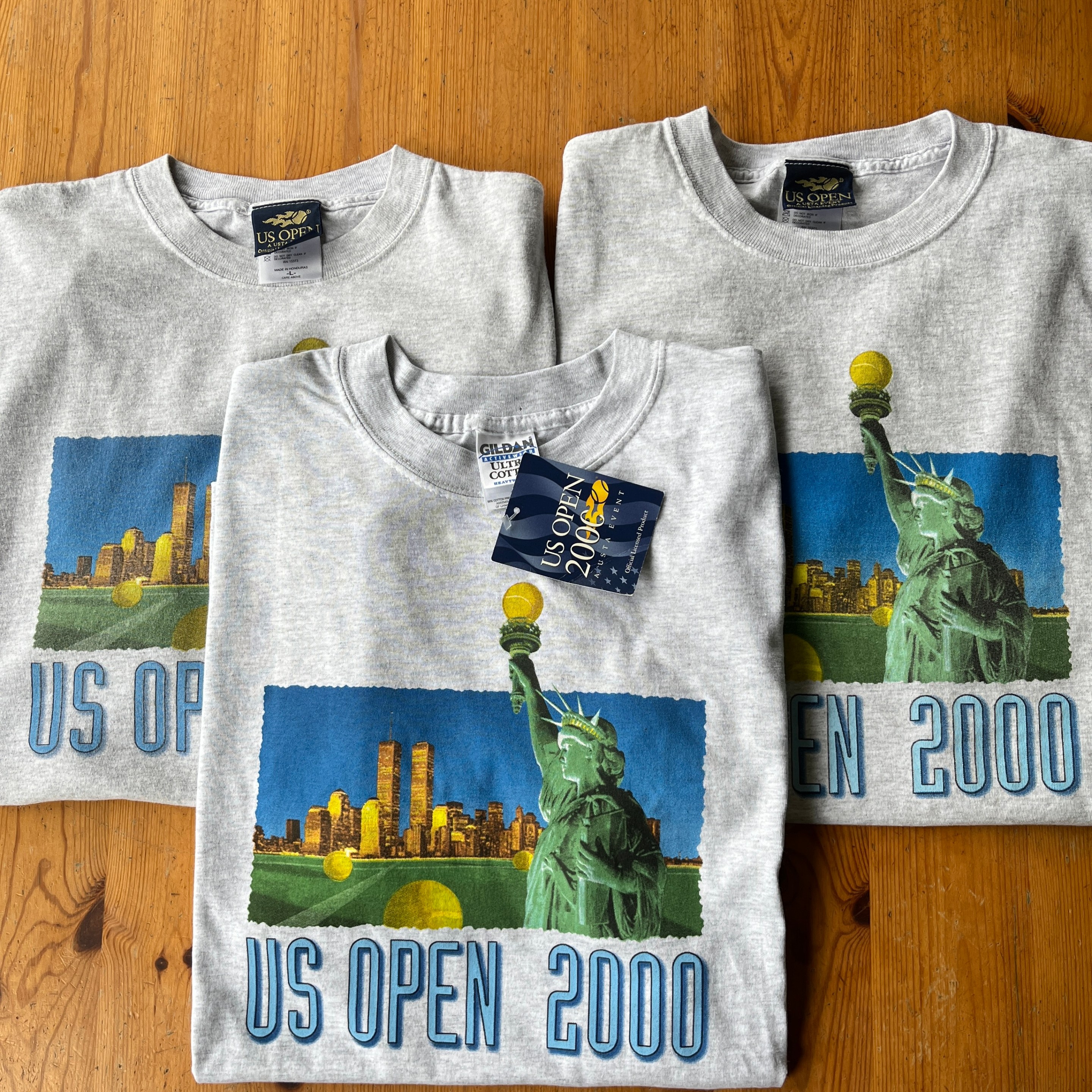It was during a trip to Japan in the early 2000’s. At the time, I was ranked #864 in the world, and was playing a series of 10K Futures with my former collegiate teammate—a Brit named Oli. This particular event occurred before competition started, as we’d arrived a week early to acclimate. We were training at a nice tennis club in Tokyo; the club pro, Hubert, had arranged for each of us to stay at different families’ apartments throughout the week. Also, apparently, we were supposed to help teach the kids’ tennis class.

Kumamoto City, Japan, 2003 Oli and I lost in the doubles final of this Japanese 10k Future and I guess we played under a cell phone tower?
That morning—a Saturday—I was supposed to be at the courts at 8:00 a.m. Hubert had arranged for Oli and me to run the kids’ clinic as a thank you for having us at the club all week. We didn’t remember saying yes to this idea, but here I was in a car on the way to the courts.
When I got to the courts around 7:30, I found Oli and we both started bitching about our nights and lack of sleep and cultural shit blah blah blah. It’s safe to say we were ready to get into a hotel and start competing and stop doing what felt like a little bit of a USA/England/Japan official state visit. I’m a tennis player, not a diplomat. I wanted to get out there and compete.

Japan, 2003 At a Japanese 10k Future, can you spot the American?
At 7:45, I looked out at the courts, and what did I see but 30 kids, under the age of ten, dressed in tennis gear, sitting in a circle, legs crossed, eyes closed, meditating.
Completely silent.
Read what I just wrote again. There was one instructor slowly walking around the children, guiding their meditation. Oli and I were floored. I have coached thousands of hours of tennis for every single age and gender at this point in my life; I had never seen anything like this. Not only were these children fifteen minutes early; they were quiet, ready, and properly dressed. It was remarkable.
Teaching American children goes like this: Half the kids are late; the parents have excuses for why they are late. The other half of the kids are wearing jeans, and the parents have excuses for why they don’t have shorts. The kids don’t listen to any of the instructions. They talk when you talk. They complain when you tell them what to do, or, more typically, they tell their parents that they don’t like what you are making them do. As a coach, you are constantly repeating the instructions for the drill over and over. Teaching Japanese kids was completely the opposite. Not only did they do exactly what I asked the first time I asked it—bear in mind that they were only nine years old—but they were also receiving my instructions from a translator. When the kids’ session ended, we took pictures and shook hands (bowing was involved). I was truly touched and inspired by their professionalism, kindness, and behavior. Three hours before, I’d been in a stranger’s apartment wondering how I could get out of this obligation; now I was sticking around, chatting with Japanese parents and kids, trying to learn from them. Another experience created through travel that made me a better person, despite the fact that if given the choice ahead of time, I would have 100 percent said, “No thank you.”
This reflection is also shared in Kosta’s new memoir, “Lucky Loser: Adventures in Tennis and Comedy.” Kosta is a stand-up comic, Daily Show host and former pro tennis player. Lucky Loser is available everywhere.






